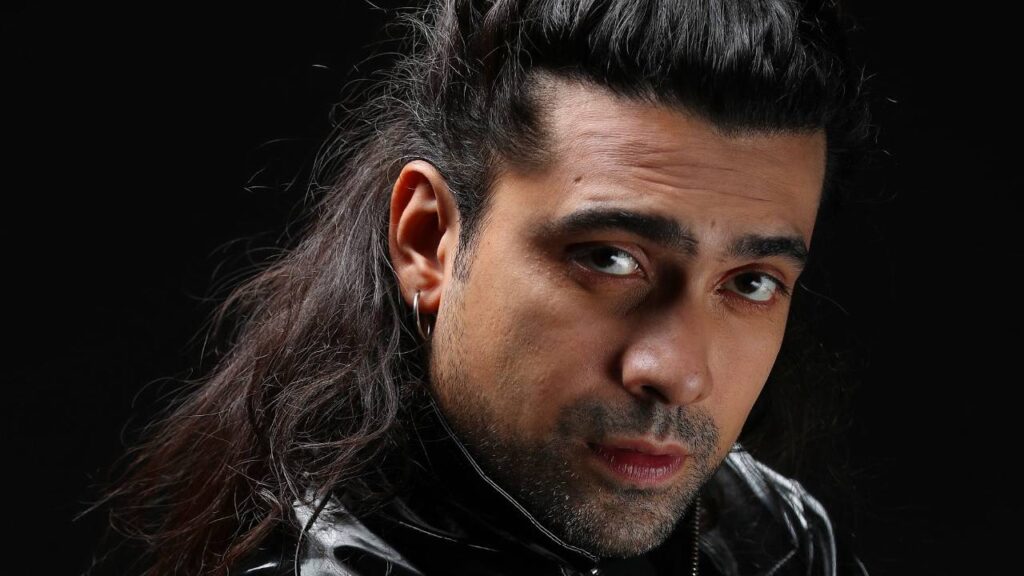At a time when remixes often feel hollow or commercial, Jubin Nautiyal proves that a reimagined classic can still move you—if it’s sung with heart. In an exclusive chat with The Pioneer, Jubin dives deep into the emotional and artistic pulse of his latest musical trifecta—Tu Tu Hai Wahi, Tumhe Dillagi and Parwardigara. These aren’t just recreated songs, but deeply personal journeys tied to his childhood, heartbreaks and spiritual path. From collaborating with stalwarts like Pt. Ajoy Chakrabarty, weaving emotions with Jonita Gandhi and Rochak Kohli, he reveals what it takes to breathe life into classics without stealing their soul
Tejal Sinha
tejal.sinha30@gmail.com
When Jubin Nautiyal sings, time slows down—and hearts listen. Whether he’s breathing new life into timeless classics or delivering soul-stirring originals, his voice wraps around your emotions and refuses to let go. In a music world often saturated with trends, the Raataan Lambiyan singer stands out by doing what few can: making you feel—deeply, instantly and honestly. With 2025 already ringing with his signature sound, he returns with a powerful trio of releases that are more than just music—they’re cinematic experiences of the heart.
From reimagining the beloved Tu Tu Hai Wahi alongside Jonita Gandhi for Netflix’s The Royals, to channeling the spiritual energy of Parwardigara with the legendary Pt. Ajoy Chakrabarty in Kesari Chapter 2 and honoring Nusrat Fateh Ali Khan in Tumhe Dillagi for Raid 2, Jubin isn’t just revisiting old hits—he’s creating new memories for a new generation.
As we first begin discussing about Tu Tu Hai Wahi, he smiles warmly–“I grew up listening to this song. It’s one of those timeless melodies that just stays with you. So, when I was asked to reimagine it, I was excited but also cautious. The idea wasn’t to change it drastically. I just wanted to present it in a way that the current generation could emotionally connect with.”
His collaboration with Jonita Gandhi was equally special. “It was smooth, honestly. There was this effortless energy between us. We weren’t just trying to sing well—we were trying to create something emotionally honest. Something that would feel real to anyone who heard it. The chemistry in a duet is more about the emotion than technique.” The Tum Hi Aana vocalist’s take on Tumhe Dillagi stands as a tribute to the legend himself, Nusrat Fateh Ali Khan. “There’s this immediate sense of reverence you feel when you’re asked to sing something originally performed by someone like Nusrat sahab,” he says, almost reverently. “You don’t touch a song like that unless you’re ready to bring your entire soul into it.”
For him, it was deeply personal. “There’ve been moments in my life where I’ve felt that kind of love—that longing, that vulnerability. That’s what I tried to bring into the song. It’s not about showing your range; it’s about showing your truth.”
Working with Rochak Kohli and lyricist Manoj Muntashir made the process even more meaningful. “Rochak brings such sensitivity to his compositions, and Manoj bhai—his words always hit the heart. They helped shape the song in a way that felt both new and yet respectful of the original.” If Tumhe Dillagi speaks of human emotions, Parwardigara is pure spiritual surrender. “This song is a prayer. You don’t perform it, you surrender to it,” Jubin shares softly. “Before recording, I spent time in silence. I just sat with the words. I didn’t want to sing it unless I really felt it.”

The experience was elevated by working with Pandit Ajoy Chakrabarty. “It was one of the greatest honours of my life. Just being in his presence is a lesson. His voice doesn’t just sing—it paints, it meditates. Watching him record was like watching devotion take form.”
Fusing classical elements with contemporary production was no small feat, but Jubin believes the essence lies in intention. “The key is respect. We used classical ragas as the foundation and layered them with modern sounds—but never at the cost of the soul. It’s always a balance.” He admits that recreating beloved classics is no easy task. “It’s like walking a tightrope. You don’t want to overdo it, and you don’t want to be too safe either. My aim is never to replace the original. Instead, I try to become a new chapter in the same book. That’s all I can do—tell the story with sincerity.”
Before stepping into any recreation, the Humnava Mere singer takes time to understand the original. “I listen to it again and again—trying to catch the emotional state of the original singer. Their pauses, their breath, their silences. Then I ask myself—what am I feeling when I sing this now? And that’s where my version begins.” In a world obsessed with going viral, Jubin believes the power of real emotion will never fade. “Trends come and go, but what people remember are the moments when they truly felt something. No matter how digital everything becomes, real emotions still connect.” He’s also deeply involved in the visual storytelling of his songs. “For me, the music video should enhance what I’m singing—not distract from it. It’s like painting—each shot, each frame should reflect the emotion of the song.” Despite his ever-evolving style, Jubin remains rooted in Indian musical traditions. “My roots are everything to me. They ground me. Classical, folk, devotional—that’s where I started. And as long as I’m honest in my approach, I can try new things without losing myself.”
With Tu Tu Hai Wahi, Tumhe Dillagi and Parwardigara, Jubin Nautiyal has not just redefined what a recreation can be—he’s reminded us that when music is made with heart, it doesn’t matter if it’s old or new. It just matters that it’s true.




